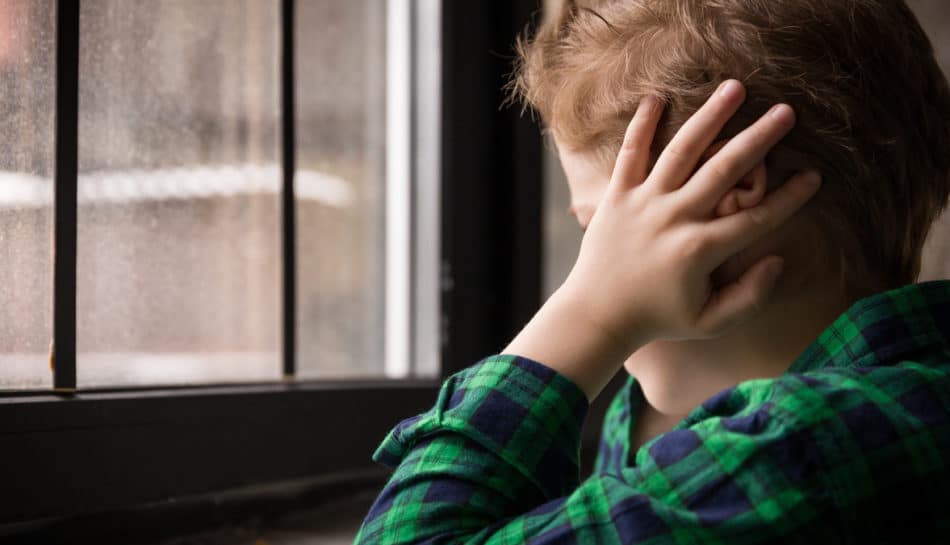Researchers at Columbia University Vagelos College of Physicians and Surgeons found that children born during the first year of the pandemic, including those exposed to COVID in utero, were no more likely to screen positive for theautism compared to unexposed or pre-pandemic children.
Autism and the pandemic
The study, published in JAMANetworkOpen is the first report on the risk of autism among children in times of pandemic.
“It is known that the risk of autism increases with virtually any type of insult experienced by the mother during pregnancy, including infections and stress,” says Dani Dumitriu, associate professor of pediatrics and psychiatry and the study’s lead author.
“The scale of the COVID pandemic has caused pediatricians, researchers, and developmental scientists to worry that we would see an increase in autism rates. But, reassuringly, we found no indication of such an increase in our study.”
It is important to note, adds Dumitriu, that the study did not take into account the diagnosis of autism, but only the risk of developing autism, measured through a screening questionnaire completed by the child’s parents.
“It’s too early to have definitive diagnostic numbers,” he says. “But this screening tool is predictive and does not show that prenatal exposure to COVID or the pandemic increases the likelihood of autism.”

There has been much speculation about how the COVID generation is developing, and this study offers us the first glimpse of an answer regarding the risk of autism.”
Dumitriu’s team has been studying the potential effects of COVID (pandemic-related maternal stress and maternal infection) on infant neurodevelopment at different time points since birth through the COMBO (COVID-19 Mother Baby Outcomes) initiative. Babies who were in the womb during the early stages of the pandemic are now reaching the age when early indicators of autism risk may emerge.
The current study looked at nearly 2,000 babies born at Morgan Stanley Children’s Hospital and Allen Hospital at NewYork-Presbyterian between January 2018 and September 2021.
Autism risk was calculated based on responses to a neurodevelopmental screening questionnaire that pediatricians give to parents to assess young children’s behavior. Scores were compared for children born during and before the pandemic and for children with and without in-utero exposure to COVID. All children were screened between 16 and 30 months of age.

Researchers found no differences in positive autism screenings between children born before the pandemic and those born during the pandemic.
“COVID is still pretty widespread, so this is comforting news for pregnant women who are worried about getting sick and the potential impact on autism risk,” Dumitriu says.
Surprisingly, the study also found that fewer children exposed to COVID in utero screened positive for autism than children whose mothers did not have COVID.
“We suspect that having had COVID during pregnancy may have influenced parents’ assessments of their children’s behaviors,” Dumitriu says. “Parents who did not have COVID may have experienced greater stress, due to constant worry about getting sick and vigilance about infection prevention, and may have been more likely to report their children’s worrying behaviors.”

As the children grow, researchers will continue to monitor them for autism diagnoses. But based on current findings, Dumitriu says it’s unlikely there will be a COVID-related increase in autism.
“Children who were in the womb at the beginning of the pandemic are now reaching the age where the first indicators of autism would emerge, and we’re not seeing that in this study,” Dumitriu says. “And since autism is known to be influenced by the prenatal environment, that’s very reassuring.”
Other deficits may emerge later, and researchers will continue to study the children’s neurological development as they grow.
Several studies conducted on infants who remained in the womb during previous pandemics, natural disasters, famines and wars have shown that other neurodevelopmental conditions, potentially triggered by the stressful environment, can manifest themselves in adolescence and even early adulthood.
“We need to recognize the unique experiences and environments of children born during the pandemic, including parental stress and social isolation, and continue to monitor them for potential psychiatric or developmental differences,” says Morgan Firestein, a research associate in psychiatry and the study’s first author.
#Autism #Children #Born #Pandemic #Longer #Risk
